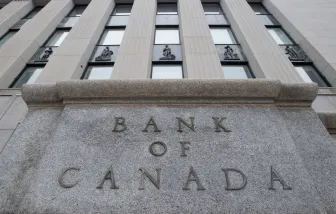Featured
article
- Get link
- X
- Other Apps
Bank of Canada Poised to Cut Interest Rates Amid Trade Uncertainty
The Bank of Canada is expected to cut interest rates next week as the looming threat of tariffs from the United States continues to cast a shadow over the Canadian economy. With newly elected U.S. President Donald Trump threatening to impose a 25% tariff on all goods from Canada, the central bank is considering a 25-basis-point rate cut to mitigate potential economic damage.
Despite recent positive economic indicators, such as a 2% growth in the fourth quarter and the addition of 91,000 jobs in December, the uncertainty surrounding trade relations with the U.S. has prompted the Bank to take a cautious approach. The inflation rate, which slowed to 1.8% in December, is also a factor in the decision-making process, although core inflation measures remain high.
Economists are divided on the necessity of the rate cut, with some arguing that the central bank should hold off to maintain flexibility in the face of ongoing economic challenges. However, the prevailing sentiment is that the potential impact of tariffs outweighs other considerations, and a rate cut is the most prudent course of action.
The Bank of Canada's decision will be closely watched by markets and businesses alike, as it will have significant implications for borrowing costs and economic growth in the coming months.
Popular Posts
Trump's Six Words: "I'm Going to Stop the Wars"
- Get link
- X
- Other Apps
Smart Savings for a Sharp School Start: Canadian Parents’ 2025 Guide
- Get link
- X
- Other Apps




Comments
Post a Comment